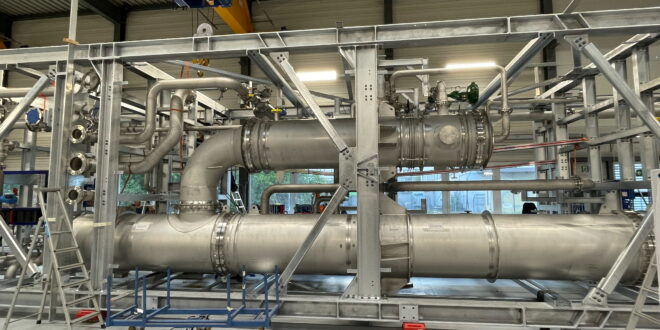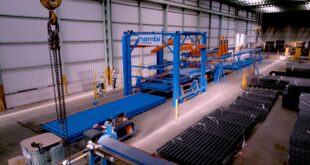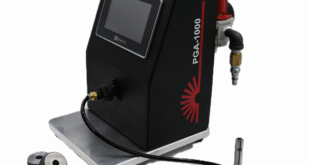Sulzer Chemtech has launched EvapCare-F, an advanced iteration of its falling film evaporator technology, backed by over 1,000 references. This next-generation solution enhances high-performance separation while reducing energy use and preserving product quality. The technology helps industrial plants decarbonise while cutting production interruptions by up to 50% and delivering superior heat transfer.
Used in combination with distillation or as a standalone unit, falling film evaporators are essential for handling heat-sensitive substances in sectors such as fine chemicals, pharmaceuticals, and bio-based materials. However, as demand for more sustainable operations and products increases, existing evaporation systems often fall short, especially in terms of energy recovery, process stability, and product degradation.
The EvapCare-F technology meets these challenges head-on. Developed to support both traditional and electrified distillation systems, including Sulzer’s own VoltaSplit, the unit uses an advanced liquid distribution system to form a stable, uniform film across every evaporator tube. This innovation enables faster evaporation with minimal thermal stress, ensuring better product quality and higher yields, even under vacuum.
The technology offers benefits, including up to 50% fewer production interruptions thanks to reduced fouling and scaling, and over 40% lower heat consumption in multi-effect setups. It can also offer shorter residence times and superior heat transfer, reducing the risk of product degradation.
Built for plug-and-play integration into new or existing plants, and suitable for large-scale operations, particularly in vacuum applications, EvapCare-F is engineered to meet the needs of demanding applications across industries. Whether used in petrochemicals, pharmaceuticals, flavours and fragrances, or wastewater treatment, it helps facilities enhance performance, reduce energy consumption, and maintain exceptional product quality.
 Engineer News Network The ultimate online news and information resource for today’s engineer
Engineer News Network The ultimate online news and information resource for today’s engineer



